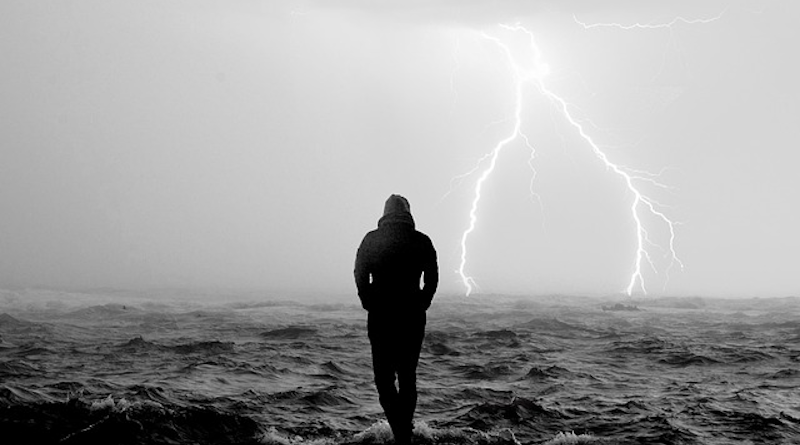This Isn’t Your Grandfather’s Climate
Extreme weather events, like those impacting millions of Americans this summer, threaten public safety, destabilize supply chains and damage vital infrastructure. Researchers from the University of Oklahoma and the Los Alamos National Laboratory have been awarded a grant from the U.S. Department of Energy to explore and simulate the atmospheric processes that lead to heatwaves, heavy precipitation, droughts and other potentially catastrophic weather events.
Jason Furtado, an associate professor and a Carlisle and Lurline Mabrey Presidential Professor in the School of Meteorology, College of Atmospheric and Geographic Sciences, leads the project alongside co-investigators Steven Cavallo and James Ruppert with the OU School of Meteorology and James Benedict with the Los Alamos National Laboratory.
“There are two problems we’re looking to address,” Furtado said. “The first is gaining a better handle on predicting extreme weather events beyond two or three weeks. The second is understanding how climate change is going to impact the frequency and intensity of extreme weather events.”
For extreme weather events to occur, there needs to be a persistent, stagnant atmospheric pattern. Weather experts refer to these as blocking patterns.
“Imagine the atmospheric flow as a river. If you throw a boulder into that river, then the flow will be forced to go around it. These boulders are essentially the blocking patterns we’re researching,” Furtado said.
Weather experts don’t currently fully understand how blocking patterns are formed or how long they may persist. Models can produce blocks but are unable to maintain them for an extended period.
“The University of Oklahoma is uniquely positioned to tackle this kind of research,” Furtado said. “Not only do we have partnerships with the National Weather Center, NOAA and the South-Central Climate Adaptation Science Center, but our partners in the College of Atmospheric and Geographic Sciences can also help us communicate our research to key decision makers.”
An additional component of this research focuses on the impact climate change is having on extreme weather events like wildfires, droughts and extreme winter weather. This research will help local, state and national leaders be prepared to deal with these situations.
“Understanding what a future climate might hold will be beneficial for people, their planning and the planning that cities will need to do,” Furtado said. “We all have to be better prepared for the new extreme weather frequency. This isn’t your grandfather’s climate anymore.”

